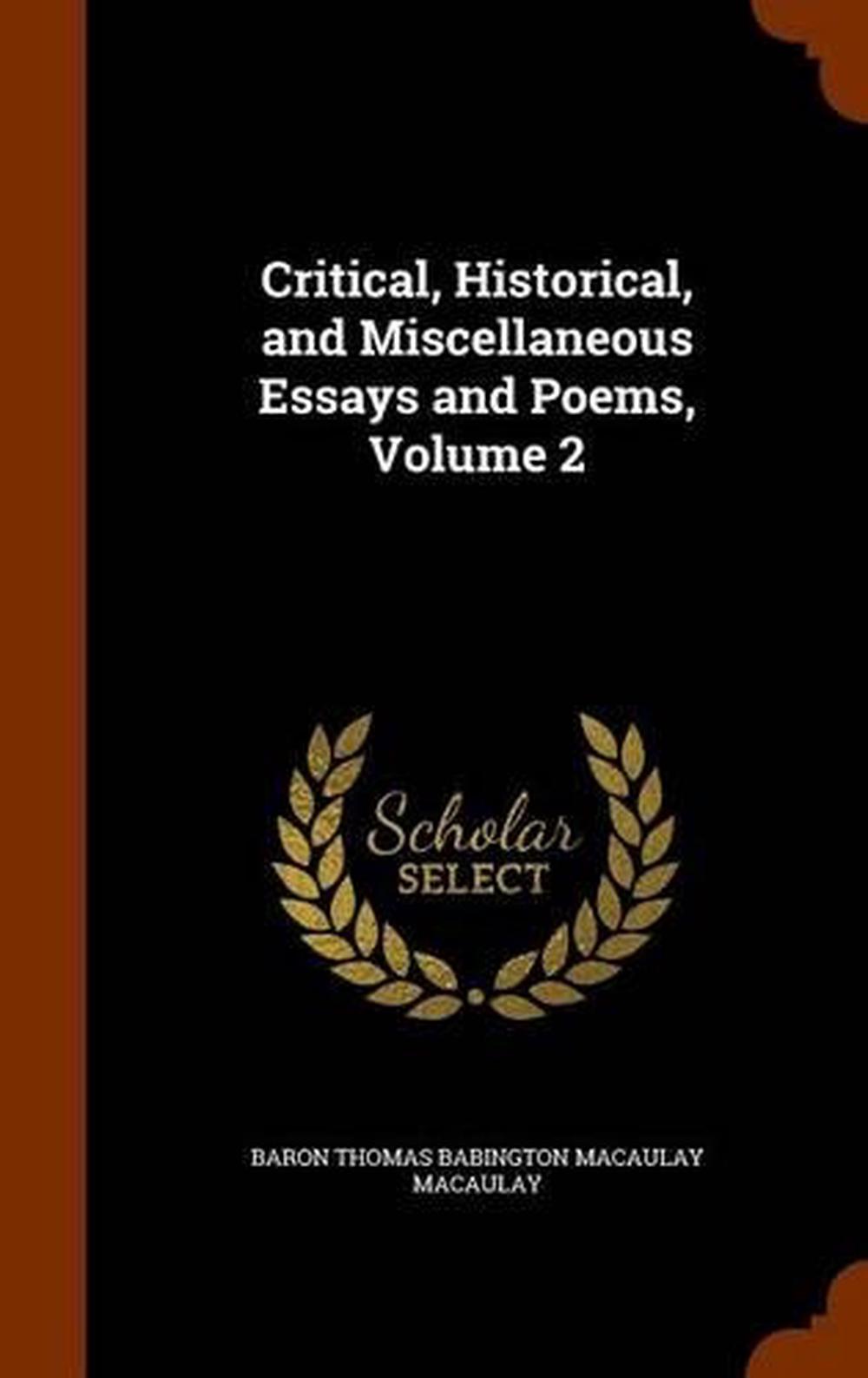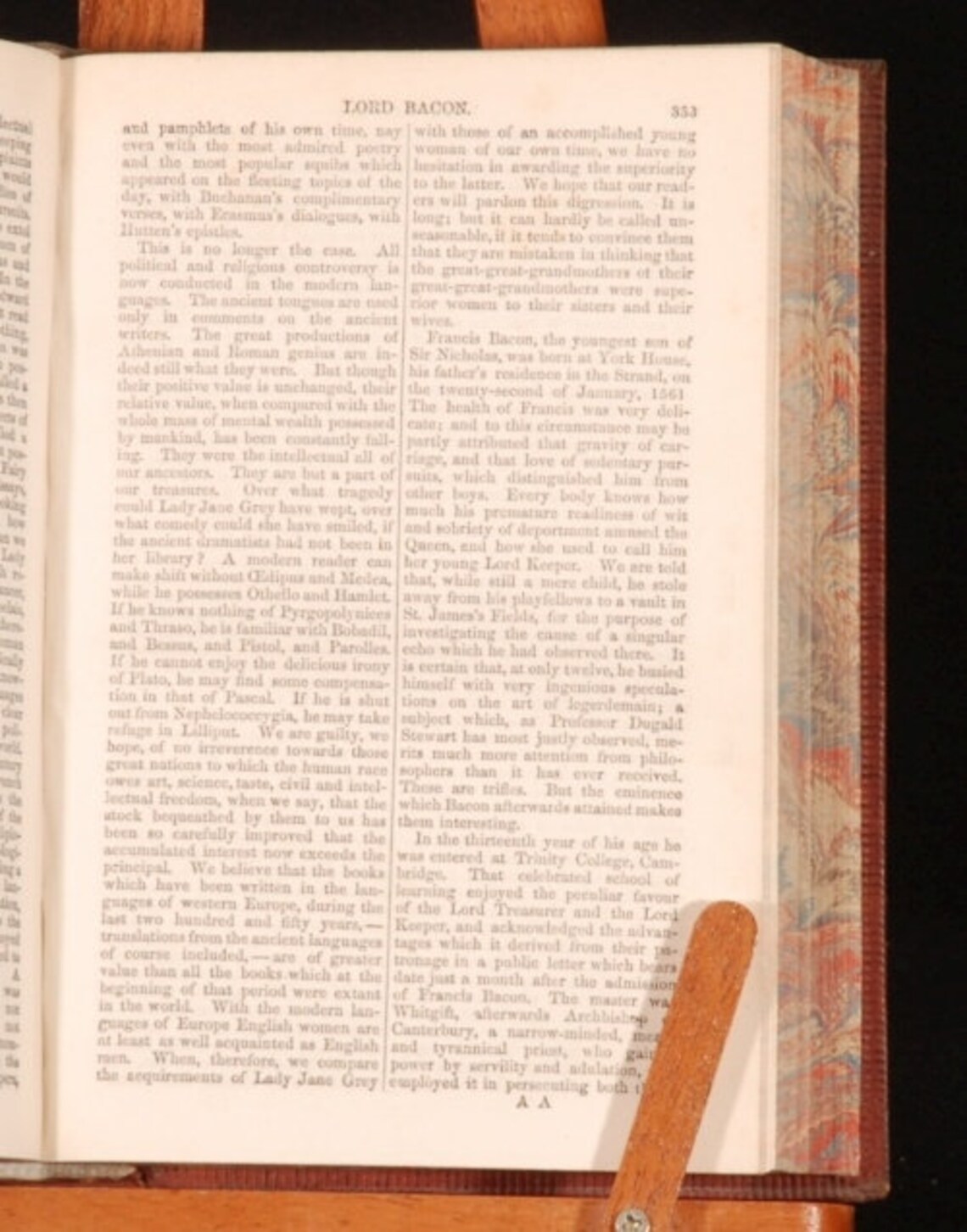

Although Macaulay had been a mild Tory when he entered the university, he was a staunch Whig when he left, and in many ways his political stance was derived from his study of the constitutional conflicts of the seventeenth century.

It was indeed appropriate that in that essay, which made him famous overnight, he should have taken his place on the libertarian side of seventeenth-century English politics.

In the latter role, he first made his mark with his essay “Milton,” which appeared in the Edinburgh Review of October 1825 ( 1963, vol. While at the university, he triumphed as an orator in the Union Debating Society and began his brilliant career as an essayist. He became a fellow of the college in 1824. He absorbed and retained the moral and ethical imperatives inculcated upon him but much to the chagrin of his father, he never underwent a conversion experience and always remained wary of the emotional excesses, cant, and hypocrisy to which an experiential religion so easily lends itself.Īt Trinity College, Cambridge, he distinguished himself as a classicist and a poet. Thus, the young Macaulay, an astonishingly precocious boy, grew up in an atmosphere of piety, introspection, and humanitarian endeavor. Macaulay's mother was the daughter of a Quaker bookseller and herself a devout evangelical. His father, Zachary, one of the leading members of the “Clapham sect,” was a stern evangelical who fought unremittingly for the abolition first of the slave trade and then of slavery itself. Thomas Babington Macaulay (1800–1859), English historian, essayist, and politician, was born at Rothley Temple, Leicestershire.


 0 kommentar(er)
0 kommentar(er)
